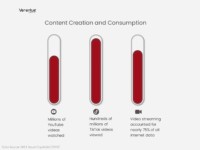Financial Mistakes to Avoid in 2025

Managing your money is more crucial than ever as 2025 approaches. Although the world economy is unpredictable, you might go from barely making ends meet to flourishing by avoiding common financial mistakes.
Here are eight financial mistakes to avoid in 2025.
1. Taking unnecessary loans
Although taking out a loan can seem tempting, doing so can eventually make you take on more debt. High interest rates and undisclosed costs are some of the features of loans which may quickly add up and make repayments difficult. Before taking out a loan, consider whether it is necessary and ensure it fits your financial situation. Consider whether you truly need anything before taking out a loan.
2. Mixing personal and business finances
Combining your personal and business money in a single account could lead to confusion. Keep them separate to ensure transparency and accountability. If your business generates your major income, pay yourself a salary and keep separate accounts for personal and business spending. This can help you keep organised and avoid money problems down the road.
3. Investing without proper understanding
Investing is an intelligent way to build wealth, but putting your money into projects you don’t wholly understand might cause harm. Whether it’s stocks, real estate, or mutual funds, take the time to study the dangers and benefits while seeking professional counsel. Do not fall into “get-rich-quick” schemes; use technology to enhance your knowledge. And, as you invest carefully, avoid making reckless lifestyle decisions that strain your budget. These decisions have the potential to undermine your progress toward financial stability.
4. Confusing saving with investing
Savings accounts provide security and access to funds, but they typically fail to keep up with inflation. Investing, on the other hand, can help you create wealth through compounded earnings. Distribute funds for suitable investment options, such as equities or mutual funds, for long-term goals like retirement or owning a home. Seek advice from financial professionals to create a diverse portfolio.
5. Neglecting an emergency fund
Unexpected expenses such as car maintenance, medical expenses, or sudden job losses may arise without an emergency fund. These unforeseen expenses might throw you off if you don’t have an emergency fund. Aim to accumulate 12–18 months’ living costs in liquid funds in a different account. Having this reserve will help you feel more at ease and prevent you from depending on loans when things get complicated.
6. Living pay cheque to pay cheque
If you spend every naira as soon as it arrives, leaving little provision for emergencies or savings, you risk becoming overly reliant on each paycheque for everyday costs. Identify and reduce nonessential spending, such as eating out or unused subscriptions, and set aside some funds for savings. If possible, search for ways to supplement your income, such as freelancing or converting a pastime into a side hustle.
7. Ignoring budgeting
It’s simple to lose track of your finances without a budget, leading to excessive spending and insufficient savings. Make a thorough budget that breaks down your sources of income so that you can save for fixed costs like your child’s school, a down payment on a home, or retirement while prioritising necessities like rent, food, and medical care. Put your earnings and outlays in writing, then create a strategy you can follow. Budgeting is about maintaining control, not about limiting oneself.
8. Forgetting about inflation
The money you have now will not purchase as much tomorrow due to inflation. To beat inflation, ensure your money holds its value by investing in assets like stocks or real estate that can grow faster than inflation. Making money work harder is necessary to maintain its worth; preserving cash is insufficient.
Financial management can be stressful, but avoiding these costly mistakes can help significantly. Financial growth takes time, so be patient with yourself and maintain consistency. In a challenging economy, every wise decision counts. Let 2025 be the year you take control of your finances and begin creating the future you want.






